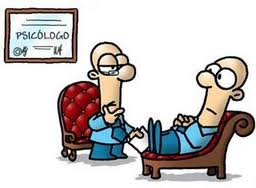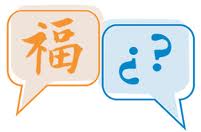Lesson 6: ¿Tienes mascotas?
You’re going to find…
Grammar Question: ¿Ser o estar? Some explanations…
Irregular Verbs of This Lesson: Querer, Poder, Pedir, Incluir, Jugar, Dormir. Irregularities Which Affect the First-Person Singular, the Second-Person Singular, the Third-Person Singular and the Third-Person Plural
Vocabulary: Mascotas (Pets)
Dialogue/Questions
Exercises
Something about Spain and South America and a little tip!
Key
GRAMMAR QUESTION: ¿SER O ESTAR?
SOME EXPLANATIONS…
Probably you’ve already noticed that in Spanish we can translate the English verb to be as ser and as estar.
But how can we understand which one is the correct option in a sentence?
This is one of the most difficult Spanish grammar matters but with a little bit of exercise it will be easy to understand.
By and large, ser indicates something that doesn’t change, it describes the essential characteristics of somebody or of something (soy alto, soy estadounidense…) and estar indicates a state, something temporary, a condition (estoy en España, estoy enfermo…).
There are some exceptions but you’re going to learn them later because right now you don’t need them.
Let’s just say that ser is used to tell “what something/somebody is” and estar is used to tell “how something/somebody is”.
Sometimes the choice between ser and estar depends on what we want to say; one example will explain it better: if I say Juan es listo I mean that Juan is a smart boy but if I say that Juan está listo I mean that he’se ready. You’re going to learn all these nuances only speaking and practicing.
Estar
Yo estoy
Tú estás
Él/Ella/Usted está
Nosotros-as estamos
Vosotros-as estáis
Ellos/Ellas/Ustedes están
IRREGULAR VERBS OF THIS LESSON: QUERER, PODER, PEDIR, INCLUIR, JUGAR, DORMIR. IRREGULARITIES WHICH AFFECT THE FIRST-PERSON SINGULAR, THE SECOND-PERSON SINGULAR, THE THIRD-PERSON SINGULAR AND THE THIRD-PERSON PLURAL
QUERER (TO WANT/TO LOVE)
Yo quiero
Tú quieres
Él/Ella/Usted quiere
Nosotros-as queremos
Vosotros-as queréis
Ellos/Ellas/Ustedes quieren
PODER (TO BE ABLE/TO CAN)
Yo puedo
Tú puedes
Él/Ella/Usted puede
Nosotros-as podemos
Vosotros-as podéis
Ellos/Ellas/Ustedes pueden
PEDIR (TO ASK)
Yo pido
Tú pides
Él/Ella/Usted pide
Nosotros-as pedimos
Vosotros-as pedís
Ellos/Ellas/Ustedes piden
INCLUIR
Yo incluyo
Tú incluyes
Él/Ella/Usted incluye
Nosotros-as incluimos
Vosotros-as incluís
Ellos/Ellas/Ustedes incluyen
JUGAR
Yo juego
Tú juegas
Él/Ella/Usted juega
Nosotros-as jugamos
Vosotros-as jugáis
Ellos/Ellas/Ustedes juegan
DORMIR
Yo duermo
Tú duermes
Él/Ella/Usted duerme
Nosotros-as dormimos
Vosotros-as dormís
Ellos/Ellas/Ustedes duermen
Of course there are other verbs like these ones.
VOCABULARY: MASCOTAS (PETS)
¿Tienes mascotas?
Sí, tengo…
…un perro (dog)
…un gato (cat)
…un loro (parrot)
…un pez (fish)
…un hámster (hamster)
…una tortuga (turtle)
…un conejo (rabbit)
Otros animales…
Rinoceronte
Elefante
Cocodrilo
Jirafa
León
Bisonte
Chancho (pig)
Cebra
Vaca (cow)
Gallina (chicken)
Oso (bear)
Panda
DIALOGUE
Alejandro, Sophie and Michelle are having launch and chatting at the university café…
Alejandro, Sophie y Michelle están almorzando y charlando en la cafetería de la universidad…
Sophie: Alejandro, hoy Michelle y yo vamos a comprar una mascota.
Alejandro: ¿Qué mascota queréis comprar?
Michelle: Un gato. Ya tenemos uno en nuestra casa. Lo encontramos hace un mes en la calle.
Sophie: ¿Tú tienes mascotas?
Alejandro: Sí, tengo un perro, unos peces, una tortuga y dos loros.
Translation
Sophie: Alejandro, today Michelle and I are going to buy a new pet.
Alejandro: What pet do you want to buy?
Michelle: A cat. We already have one at home. We met it one month ago in the street.
Sophie: Do you have any pet?
Alejandro: Yes, I’ve got a dog, some fishes, a turtle and two parrots.
- Preguntas (key at the end of the lesson)
- ¿Qué mascota quieren comprar Sophie y Michelle?
- ¿Qué mascotas tiene Alejandro?
Respuestas correctas: …/4 (2 points for every right question)
EXERCISES (KEY AT THE END OF THE LESSON)
2. Answer the following questions:
– ¿Tienes mascotas?
– ¿Cómo se llama/n?
– ¿Cuál es tu animal favorito?
3. Choose between ser or estar (you can find some words’ translations: a little help!)
- Hoy (today) yo … muy feliz (happy).
- Sara … inglesa.
- Mi mejor amigo … alto (tall).
- El lunes mis colegas … todos nerviosos.
- La manzana (apple) … verde.
- Tú … un chico listo.
- Ellos siempre (always) … alegres.
- Vosotros … aburridos.
- ¿Eleonor, cómo … hoy?
- Nosotras … listas para salir.
Respuestas correctas: …/10
4. Write 5 sentences with ser and 5 sentences with estar
5. Write the right form of pedir, querer, jugar, dormir, incluir. Then translate the sentences
- Cada noche yo … ocho horas.
- Mi novio … casarse conmigo.
- Tus hijos … siempre y nunca estudian.
- La tarifa … todo.
- Nosotros te … ayuda.
- Quiero … Estoy muy cansada.
- Tú … la cuenta.
(Verbs) Respuestas correctas: …/7
(Translation) Respuestas correctas: …/7
SOMETHING ABOUT SPAIN AND SOUTH AMERICA AND A LITTLE TIP!
MATE
In Argentina, in Uruguay and in other countries in South America people drink mate all day long. Mate is an infused drink and it’s prepared from steeping dried leaves of yerba mate in hot water. It’s served with a metal straw from a shared container. Drinking mate has got a very strong social meaning: you share the container and the metal straw, called bombilla, with your family or with your friends and you chat and spend some time together. Drinking mate is healthy both physically and emotionally.
En Argentina, en Uruguay y en otros países latinoamericanos la gente toma mate todo el día. El mate es una bebida preparada con yerba mate y agua caliente. La bombilla y el recipiente para tomar esa bebida se comparten: tomar mate tiene un fuerte significado social; lo tomas con tu familia o con tus amigos y, mientras tanto, charláis y pasáis un rato juntos. Tomar mate es saludable para tu físico y para tu mente.
DON’T BE AFRAID! – ¡NO TENGAS MIEDO!
When we learn a new language we’re afraid to make mistakes but it’s normal. You only have to try to understand and to be understood when you speak. Of course the more improve your skills the better, but you need time to do that and there’s no rush! Meanwhile ask if you have some doubts and smile about your mistakes!
Cuando aprendemos un nuevo idioma tenemos miedo de hacer errores pero eso es normal. Lo único que tienes que hacer es intentar entender y que los demás te entiendan cuando hables. Obviamente hay que mejorar tus capacidades pero necesitas tiempo para lograrlo y ¡no hay prisa! Mientras tanto pregunta si tienes dudas y ¡ríete de tus errores!
KEY
1. Sophie y Michelle quieren comprar un gato/Alejandro tiene un perro, unos peces, una tortuga y dos loros
3. estoy/es/es/están/es or está because the apple can be green because of the color (that’s a feature that never changes) or because it’s not ripe yet (so it’s green temporarily)/eres/están/sois/estás/estamos
5. (verbs) duermo/quiere/juegan/incluye/pedimos/dormir/pides (translation) I sleep eight hours every night/My boyfriend wants to marry me/Your children always play and never study/The fee includes everything/We ask for your help/I want to sleep. I’m very tired/You ask for the bill
Respuestas correctas: …/28
If your right answers are 24/28, congratulations!
If your right answers are 19/23, maybe you didn’t understand some topics or you’ve learnt something quickly. Try to understand why you made mistakes.
If your right answers are less than 18, review the whole lesson: I’m sure that next time you’ll succeed!




























